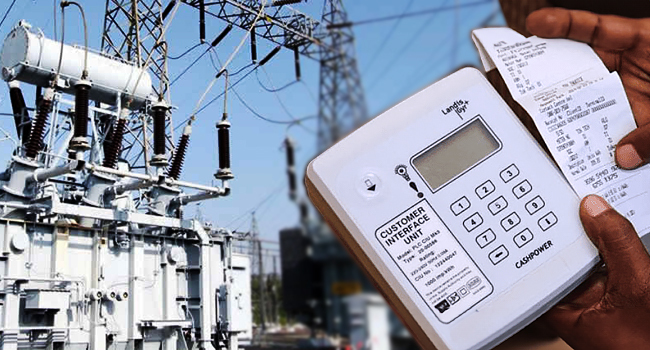By Shittu Abass
Amidst the scorching heat of the afternoon sun, Kajola Hikmah Omobolanle, second-year student of Adekunle Ajasin University Akungba Akoko, returned home from a grueling day of lectures, seeking solace in a moment of respite, as she went to a grocery store hoping to quench her thirst with a simple bottle of water.
However, her heart sank as she reached for it, confronted by a stark reality. What was once an affordable indulgence now bore a price tag that seemed unjustifiably steep.
“I had just returned from a long day of lectures, my mind heavy with assignments and deadlines.
Her eyes welled with tears as she continued, “But as I reached for the fridge, my heart sank. The once-affordable bottle of water now bore a price tag that felt like a heavy blow to my already strained budget. Fifty naira. It may seem trivial to some, but to me, it was a stark reminder of the relentless climb of living costs fueled by electricity tariff hikes.”
Omobolanle paused, struggling to compose herself before pressing on. “That moment was a painful awakening. It wasn’t just about the water; it was about the sacrifices we make as students trying to carve out a future amidst financial uncertainty. The hike in tariffs promised better services, but all I saw was the same flickering lights and intermittent outages plaguing our daily lives.”
From Bills to Budgets
The Nigeria Electricity Regulatory Commission (NERC) declared on April 3 a staggering 230% increase in electricity tariffs, marking a significant rise from N66 to N225 per kilowatt-hour.
This move aims to slash the estimated N2.9 trillion electricity subsidies in the 2024 fiscal year, necessitated by cash flow constraints stemming from the federal government’s inability to meet obligations to the Nigerian electricity market.
This prompts students to frown and clamor for this evolution because, directly or indirectly, it affects them.
However, in an interview with a Harbinger reporter, the students lamented the potential impact of these subsidy cuts on their access to affordable electricity and their overall cost of living.
Omobolanle’s frustration extends beyond mere financial strain; it is compounded by the persistent inadequacies in electricity provision despite the tariff hike. “One would expect that with the substantial increase in tariffs, there would be a corresponding improvement in service reliability.
Living in the Dark: Students Expose Challenges of Unaffordable Electricity
In his own case, Ayoade Abdulsalam, a first-year student of Agriculture program at the Federal University of Jos, said the price of electricity has affected the cost of goods.
“The repercussions of tariff adjustments extend far beyond the realm of electricity bills; they reverberate through every facet of student life,” Abdulsalam said.
“As the price of electricity escalates, so too does the cost of goods and services, creating a ripple effect that burdens students already navigating tight budgets.”
Abdulsalam elucidated the cyclical nature of the challenges posed by tariff hikes, emphasizing the interconnectedness of economic dynamics. “It’s a vicious cycle: as electricity tariffs soar, merchants pass on the burden to consumers through inflated prices, further straining our financial resources,” he explains.
In advocating for a reconsideration of the tariff hike, Abdulsalam mentioned the need for policymakers to recognize the disproportionate burden placed on students.
“While the government seeks to balance fiscal responsibilities, it must also prioritize the welfare of its youth population, ensuring that educational pursuits remain accessible and sustainable,” he asserts.
The Burden of Off-Campus Living Without Electricity
However, Chukwuemeka Emmanuel, a second-year Political Science student at the University of Lagos, delved into the multifaceted challenges posed by electricity tariff hikes, particularly for students living off-campus.
Emmanuel provided a poignant narrative of the intersection between financial constraints and academic aspirations in the face of escalating utility costs.
“As a student navigating the complexities of off-campus living, access to reliable electricity is not merely a convenience but a fundamental necessity for academic success,” Emmanuel said with palpable concern.
“The tariff hike has exacerbated our financial strains, making it increasingly difficult to afford essential goods and services essential for both academic and personal well-being.”
Emmanuel recounts the practical difficulties encountered as a result of service disconnections due to unpaid bills, directly attributable to the tariff increase.
“We find ourselves caught in a Catch-22 situation: unable to afford electricity bills due to inflated tariffs, yet facing disconnections that impede our academic pursuits,” he reveals.
Importance of Accessible Utilities for Socio-Economic Mobility
In urging the government to reconsider the tariff adjustment, Emmanuel emphasizes the broader ramifications for students’ socio-economic mobility. “Access to affordable utilities is not merely a matter of convenience but a fundamental enabler and socio-economic advancement,” he contends. “As stakeholders weigh the fiscal imperatives, they must not lose sight of the human cost borne by students striving to realize their aspirations amidst mounting financial pressures.
Also, Omobolanle emphasized the detrimental impact on students’ overall well-being, urging stakeholders to address the glaring disparities between increased costs and diminished service quality.
Reasons Behind the Hike and Assurance of Stability- BEDC Officer
In an interview with Mr. Odegbami, an employee at an electricity distribution company in Akoko, Ondo State, he provided clarity on the rationale behind the tariff adjustment.
He explained that the decision was made in response to the mounting debt in the power sector, exceeding N3 trillion, owed to electricity-generating and gas companies. Despite concerns, he assured students and the public of improved stability in electricity supply, emphasizing the importance of receiving commensurate service for the increased tariff.




